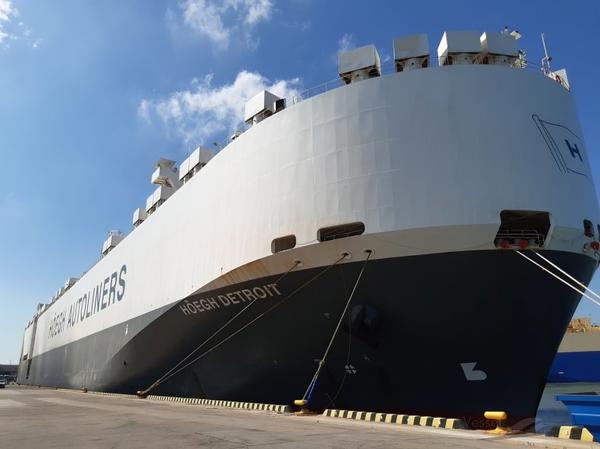Höegh Autoliners optimise engine performance for CII compliance
South Korea-based engine maker Hanwha Engine and Swiss turbocharger manufacturer Accelleron have conducted an engine part-load optimisation (EPLO) for Höegh Autoliners’ 7,850 CEU car carrier.
 PHOTO: Höegh Autoliners’ car carrier Höegh Detroit. VesselFinder
PHOTO: Höegh Autoliners’ car carrier Höegh Detroit. VesselFinder
The duo carried out several modifications on Höegh Autoliners’ car carrier Höegh Detroit.
EPLO helps to improve ship’s fuel efficiency and performance when the engine is not running at full capacity, thereby improving ship's carbon intensity indicator (CII) rating.
The IMO’s CII regulation measures how efficiently a ship transports goods or passengers. It is expressed in grams of CO2 emitted per mt of cargo and nautical mile. The ship is then rated every year from A to E (A being the highest). Rating criteria will become stricter by 2030.
As a part of this project, Hanwha Engine and Accelleron installed turbocharger nozzle rings, turbine blades, and compressor wheels that are “more suitable to the vessel’s lower speed profile,” Accelleron said.
Höegh Detroit was also equipped with a new propeller that enables the vessel to reach its maximum speed while demonstrating fuel savings equivalent to 5% of total bunker fuel consumption, Accelleron claimed.
“The improvement not only enables the vessel to operate in a high CII rating but also provides substantial operating cost reduction in terms of fuel costs and EU ETS expenses and reduced CO2 emissions,” Accelleron said in a statement.
The companies will carry out similar modifications on seven more vessels owned or operated by Höegh Autoliners.
By Aparupa Mazumder
Please get in touch with comments or additional info to news@engine.online






